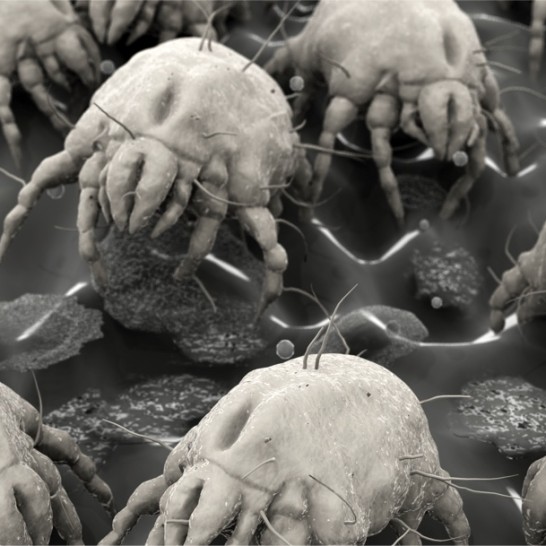Once a week, Diane Foernssler takes arms against the dust that invades her Darien, Ill., home, using everything from the vacuum cleaner to a special mop for blinds and baseboards.
On those other six days, however, the dust wins.
“It’s everywhere and it never goes away,” says Foernssler, a fitness trainer and mother of two. “It’s a losing battle.”
Related
Unfortunately, she’s right.
Experts say dust’s constant accumulation on all those books, clothes and knickknacks has nothing to do with poor housekeeping. It’s a naturally and continually forming collection of some pretty gross stuff.
“It has nothing to do with being dirty,” says Dr. William Berger, a Mission Viejo, Calif., allergist and author of “Asthma and Allergies for Dummies.” ”You can leave your house closed for two or three weeks and come back and there will be dust.“
A whole lot of it. According to Berger, the average six-room home in the United States collects 40 pounds of dust each year.
The main contributors to all that indoor dust are microscopic dust mites; the breakdown of fibers from household fabrics and furniture; and human and animal dander (the nice name for skin flakes).
The dust mites, which have a taste for human skin, come in “countless numbers” in your bedding alone, let alone other spots around the house, Berger said. Getting rid of them is impossible; Females lay 20 to 50 eggs every three weeks.
Dust and dust mites are a large part of “indoor air pollution,” a leading environmental health risk — primarily because people spend about 90% of their time indoors, according to Molly Hooven, a spokeswoman for the Environmental Protection Agency. Dust and dust mites can trigger asthma attacks and allergies.
There are, therefore, reasons for keeping dust to a minimum that are far more important than maintaining appearances, the spokesperson says.
So while eradicating dust altogether may be a pipe dream, there are steps you can take to mitigate its accumulation in your home.
The first is the same old trick that shows up on housekeeping tip sheets again and again: Get Rid of All That Stuff.
“The more clutter there is the more dust there is,” Berger says. Things like books, clothing and toys such as stuffed animals are prime collectors of dust, he says. So are the pennants and posters kids like to hang on their walls.
Berger suggests concentrating dust-fighting efforts on bedrooms, since we spend about one-third of our lives asleep.
“The bedroom should be as bare as possible,” Berger says. That means having an uncarpeted floor, minimal furniture and only the current season’s clothes in the closet.
For walls, using paint that can be cleaned with water is helpful. So are HEPA (short for High-Efficiency Particulate Arresting) air filters.
Occasionally using those old standbys — a vacuum and a can of Endust — also provides at least temporary relief, Berger says.
But if you’re looking to keep allergens, not just unsightliness, at bay, Berger suggests protecting yourself even more. Encase mattresses, box springs and pillows in allergy proof covers.
With summer approaching, Berger recommends air conditioning over fans, which simply blow dust around. (Remember to change air-conditioner filters.)
Jack DiBiccari, a New Rochelle, N.Y., contractor, is rarely — if ever — fazed by what he finds lurking in people’s hidden corners and behind furniture that hasn’t been moved in years.
“It’s heavy,” DiBiccari says. “How often is someone going to move a king-size bed? Forget it.”
DiBiccari says he tries not to add to the problem, using vacuums with HEPA filters, wiping up dust and protecting things like newly lacquered furniture before calling it quits for the day.
“We do everything,” he says. “But you’ll never get rid of dust.”
###
By: Diana Marszalek, The Associated Press
May 31, 2012
life.nationalpost.com
You may also be interested in . . .
The Gross Truth About How Often You Should Replace Your Pillow
The Question: How Often Should I Replace My Pillow? The Answer: Nearly 70 percent of people say a comfortable pillow is very important to a good night's…
5 Best Tips To Prevent Indoor Allergies
Home is the best thing in the world - except if you are allergic to your house. Many people are reported to be allergic to something or the other inside…
Dust Mites and Allergies
When I moved into my current home in Southern California nearly 20 years ago, I went searching for nontoxic paint, carpeting, and other furnishings. My…

